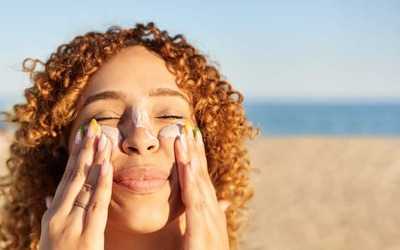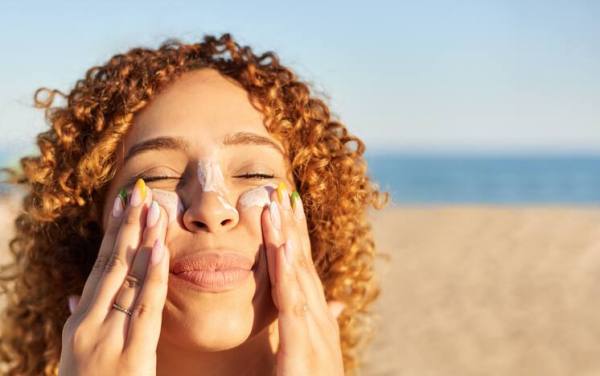
 Image credits: Getty- stock photo
Image credits: Getty- stock photo
The Science Behind Sunscreen and Ageing
Ageing is unavoidable, but external influences, notably sun exposure, accelerate it significantly. UV radiation from the sun degrade collagen and elastin, resulting in wrinkles, sagging, and pigmentation. According to studies, UV exposure causes up to 90% of apparent skin ageing, also known as photoaging. Sunscreen functions as a protective barrier, keeping harmful rays from damaging your skin.
What Happens When You Avoid Sunscreen?
When you go outside without protection, UV rays penetrate your skin, causing:
Fine lines and wrinkles result from collagen degradation.
Hyperpigmentation and sunspots make the skin look lifeless and uneven.
Skin elasticity declines, resulting in early sagging.
An increased risk of skin cancer, especially melanoma.
While some skincare treatments claim to reverse these indications, only sunscreen can actually prevent them.
Sunscreen: An Anti-Aging Powerhouse
Sunscreen is often associated with beach days, but it should be used every day, rain or shine. Dermatologists recommend applying broad-spectrum sunscreen (SPF 30 or above) every day to properly protect against UVA (ageing) and UVB (burning) radiation. Here's how it functions as an anti-aging superhero:
1. Prevents wrinkles and fine lines
Sunscreen preserves collagen and elastin fibres, allowing your skin to remain plump and youthful for longer. A 2013 study published in the Annals of Internal Medicine indicated that persons who used sunscreen on a daily basis had 24% less skin ageing than those who did not.
2. Reduces dark spots and maintains even skin tone
If you're dealing with hyperpigmentation or melasma, SPF is your friend. Sun exposure exacerbates pigmentation disorders, making them more difficult to correct. Consistent sunscreen use can help diminish existing dark spots and prevent new ones from developing.
3. Prevents Collagen Breakdown
Collagen is the protein that helps maintain skin firm and smooth. UV radiation increases collagen degradation, resulting in sagging and rough texture. Sunscreen preserves collagen levels, delaying obvious indications of ageing.
4. Reduces redness and sensitivity.
Many anti-aging therapies, like retinol and chemical exfoliants, increase skin sensitivity to the sun. Without SPF, these treatments can cause irritation, redness, and peeling. Sunscreen guarantees that your skincare efforts are not wasted.
How to Select the Right Sunscreen
With so many alternatives on the market, selecting the correct sunscreen can be difficult. Here's what you should look for:
Common Myths about Sunscreen
Myth 1: "I don't need sunscreen on cloudy days."Fact: Up to 80% of UV radiation can get through clouds. Daily application is not negotiable.
Myth 2: "Dark skin doesn't need sunscreen."While melanin provides some natural defence, it does not prevent sunburn or skin cancer. SPF is essential for all skin tones.
Myth 3: "Makeup with SPF is enough."To achieve the labelled SPF protection, apply seven times the typical amount of foundation. Always apply a separate sunscreen.
Sunscreen is not negotiable
Skincare trends come and go, but sunscreen is still the gold standard for anti-aging. It's the simplest and most efficient technique to keep your skin looking young for years. If you're seeking for the one product that will genuinely make a difference, start with sunscreen.